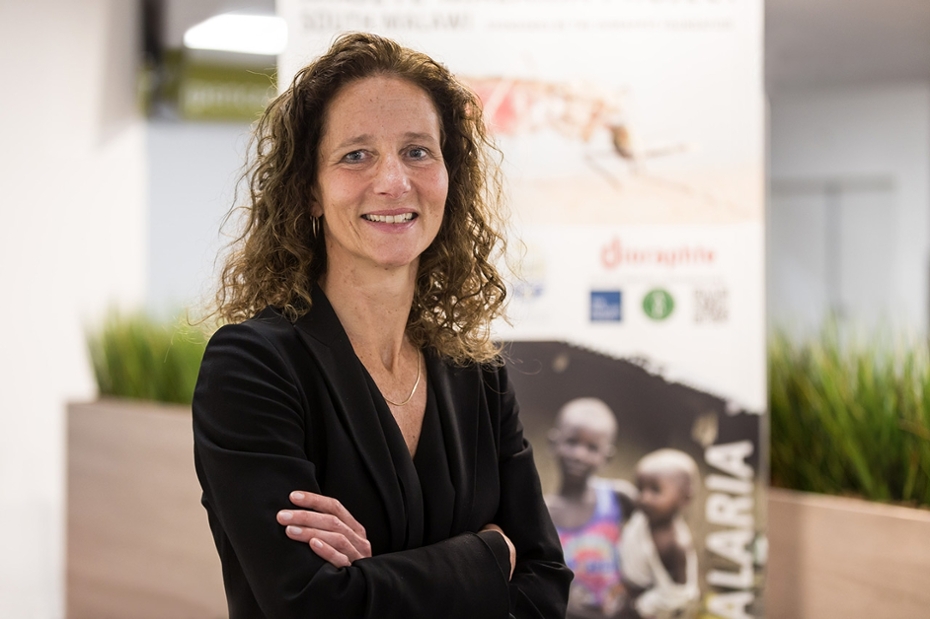Minuscule blood clots, an immune system that has been set adrift, a residual virus. Enough theories to explain long covid, but there is no proof yet. “And as long as you don't know the cause, you can't treat it properly”. Plenty of theories, but long covid remains a mystery. Michéle van Vugt, professor of infectious diseases at Amsterdam UMC, and Merel Hellemons, lung specialist at Erasmus MC in Rotterdam, were interviewed on this topic by Trouw.
Health complaints
Half of the people who have had a corona infection still have health complaints after three months, the RIVM reported this week. Tiredness, headaches, concentration problems; people have the feeling they are still not the same. Sometimes the complaints have nothing to do with the infection; a quarter of the Dutch suffer from it even without corona. But a large group does not get better. And some of them are in a very serious condition. "Some people, months later, still can't get off the couch, as a matter of speaking," says Michèle van Vugt, professor of infectious diseases at Amsterdam UMC.
How many people in the Netherlands are affected is unclear. Ten thousand, twenty thousand? "It is most likely an underestimate," says Van Vugt. "What we see here at the outpatient clinic is the tip of the iceberg. Many patients are afraid to admit it, afraid that they will not be taken seriously. People think it's a kind of burn-out.”
Seemingly healthy people
People with extreme long covid (or PASC, as the syndrome is officially called: Post-Acute consequence of SARS-Cov2 infection) become tired very quickly. If they have to make an effort, their heart rate goes up and their condition deteriorates. And yet a bit of exercise usually helps when someone is recovering from the flu, for example. Van Vugt: "These people led a regular life before covid. Most of them were fit, sporty. But not anymore. They want to, but they cannot. They experience it as a physical problem. But if it goes on for months, it has an effect on the mind as well.” At first glance these people are healthy, she emphasises. They seem to have recovered from covid. "If you listen to their lungs, you don't hear anything abnormal. And their blood levels show no abnormalities either."
Every patient seems to have a different situation
Medical science currently has no proven explanation for the origin of long covid. The disease itself has not yet been clearly defined either, says Merel Hellemons, lung specialist at Erasmus MC in Rotterdam. "It is a heterogeneous picture. There is no single type of disease. Something different seems to be going on with each patient. It varies from loss of smell to being forced to stay in bed. There are also no diagnostic criteria for long covid, except that you still have symptoms twelve weeks after a completed infection. That makes it difficult to pinpoint a single cause. It looks more like a complex correlation of factors. A puzzle of which we do not yet have all the pieces.”
Current hypotheses regarding long covid
There are studies that have shown viral residues in patients, pieces of viral RNA or viral proteins, months after infection. In the intestines in particular, but also in the lungs, muscles, various organs and even in the brain. But, Hellemons emphasises: "Not a single study has been able to relate that presence to long covid. So we don't yet have causal evidence."
Hypothesis 2: The immune system turns against the body
The immune system also seems to have fallen out of step in another way. Autoantibodies have been found in some long covid patients, as if the immune system had suddenly turned against the body itself. "It could be a glitch in the system," says Hellemons. "Perhaps protein pieces from the virus resemble proteins from the body and the immune system makes a mistake." But again, experimental evidence is lacking.
Hypothesis 3: Lingering viruses attack
Finally, there is the idea that the immune system is so exhausted in the fight against corona that other latent viruses have had their chance. About 80 per cent of people carry such latent viruses as cytomegalovirus or epstein-barrvirus (which causes Pfeiffer's disease). Supporting this theory is the fact that such flare-ups of viruses are also associated with ME (also known as chronic fatigue syndrome). "There is a lot of overlap," says Hellemons. "In both cases the fatigue is disabling and worsens with exertion. And in ME patients too, the heart rate can shoot up when they stand up." But again, the experimental data does not yet provide convincing evidence for this.
Hypothesis 4: Blood clots as the suspect
Another explanation for long covid sees blood clots as the suspect. That is not such a surprising thought. The coronavirus itself can cause thromboses. Only: such blood clots have not been found in long covid patients. But minuscule blood clots have been found, according to Italian and South African researchers, among others. They have seen such clots under a so-called fluorescence microscope. They have also observed that these clots can close off fine capillaries in the lungs, depriving parts of them of oxygen.
It is a hot topic, confirms Hellemons, but these findings have not yet been confirmed anywhere. "In the meantime, there is a clinic in Germany that offers a test for the presence of these blood clots for a lot of money - 500 euros. While it is unclear whether the clots are the basis of the symptoms, you can get a therapy in which the blood is filtered outside the body and returned with a high dose of anticoagulation. That anticoagulation can be life-threatening. And who knows, it's like mopping the floor with the tap open, and clots form again and again."
Blood clots, van Vugt's hypothesis
Nevertheless, blood clots are one of the hypotheses that Michèle van Vugt in Amsterdam UMC has started working with. Together with Brent Appelman and Rob Wust, she examined two groups of corona patients who did not end up in the hospital. Half of the patients had severe long covid after a corona infection, the others no longer had any symptoms. "The idea was," she says, "that in the first group something happened in their muscles. Their lung function is not to blame, it is good, but after a little exercise they are still worn out."
It could therefore be that very small blood clots in the capillaries of the muscles stop the blood flow, so that the tissue cannot supply any energy due to a shortage of oxygen. A phenomenon that van Vugt knows from malaria, an infection in which she specialises. The blood clots in long covid can originate during the infection, or as a result of an autoimmune reaction. van Vugt: "It is also possible that the virus had an influence on the energy management of the muscle cells. Or that the mitochondria of the cells, the energy factories, no longer transfer their energy properly. Perhaps the virus itself is still active in the muscle cells. And as a final hypothesis: we may run into something that we haven't thought of yet. After all, it is a new disease."

have objective, verifiable evidence of it, we can start working on a treatment. That evidence is essential: you can't start treating if you don't know exactly what's going on."
Small pieces of muscle tissue removed
In order to test all these hypotheses, a surgeon took muscle biopsies from the test subjects: before and after exertion, small sections of muscle tissue were removed - 'quite painful’, van Vugt admits. The tissue was examined in various ways: for the structure of muscle fibres, their functionality, the presence of blood clots, viruses or antibodies. A pathologist also examined the cells for abnormalities..
The results are currently being analysed, but she can already say that there are clear differences between the two groups. "What these differences mean will only become clear once we have completed the study. I must be careful not to draw any conclusions at this stage. There is a danger that I will confirm my own idea too soon. We must first prove or rule out these four hypotheses. They could also be different causes for different variants of long covid. Or they may influence each other and we need to disentangle them.”
Nevertheless, these first results give her great encouragement. "If we know what causes long covid, if we have objective, verifiable evidence of it, we can start working on a treatment. That evidence is essential: you can't start treating if you don't know exactly what's going on."
Source: read the original (Dutch) article by Joep Engels in Trouw here.
Photo Michèle van Vugt made by Dirk Gillissen

